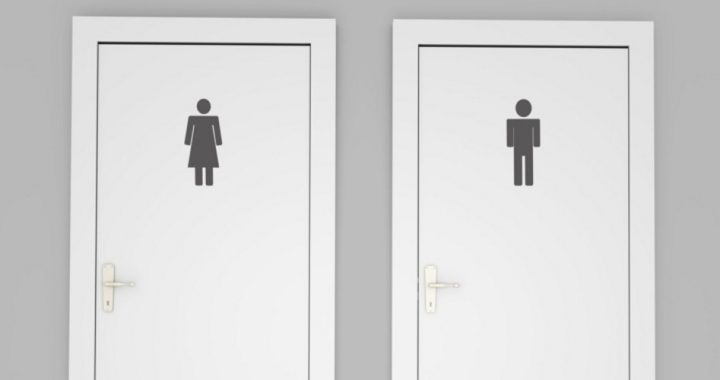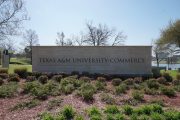
Marshall University in West Virginia will be training its employees about “heterosexual privilege” on February 21 as part of the school’s Safe Space training for faculty and staff. The purpose of the optional session is to help educators better understand the isolation allegedly experienced by the LGBTQ community and to encourage them to foster a more inclusive environment.
“Our society is geared toward traditional heterosexual roles and relationships, and as a result, there are certain “privileges” that heterosexuals in traditional relationships are afforded that they may take for granted that others in the LGBTQ community may not have,” Morgan Conley, a mental health specialist for the university, told Heat Street.
According to Associate Dean of Student Affairs Carla Lapelle, the training should help instructors’ interactions with their students.
“We want people to have a better understanding of our students, no matter how they identify,” Lapelle said. “We have such a huge variety (of students) and if we don’t recognize the differences in people, then we make language mistakes that make them uncomfortable.”
Those in attendance at the training will be asked to participate in a “Privilege for Sale” exercise in which employees will be separated intro groups and provided with a list of “privileges” enjoyed by heterosexuals that are apparently not available to those in the LGBTQ community. They will then be asked to select which of those “privileges” they would like to keep if only permitted a few.
Conley explains, “The group has to collectively agree and then explain why they picked what they picked and why they didn’t pick others.”
One example of a “heterosexual privilege” is the ability to use the restroom associated with the identified gender without fear of condemnation. Of course, non-transgender homosexuals can do the same thing, so perhaps they have “homosexual privilege.”
The training will consist of both lecture and discussion, Conley states. Though attendance at the training is optional, instructors are encouraged to attend.
“I think a lot of times, we’re reserved if we don’t understand a situation and I want to give faculty and staff the best opportunity to reach their students,” Conley said. “I think that it’s important to understand the students that you are working with so you provide them with the best environment possible. I think that if faculty and staff have the opportunity to attend, they should because it enhances the experience for others because it is so discussion based.”
Marshall University was named the most LGBTQ+ friendly campus in West Virginia in 2015, its website boasts. It is not the first educational institution to train its staff on how to handle so-called heterosexual privilege. Two years ago, the Wake County School District in North Carolina trained its educators by helping them to “rank their societal privilege.” According to ABC 11 News, the philosophy behind the training was that “heterosexual white men in America have an advantage and may appear insensitive to culturally diverse students.”
And though Marshall University appears to be the first institute of higher education to train its staff on “heterosexual privilege,” it is not the first to have acknowledged its alleged existence.
The Gender and Sexuality Center at Carleton College in Northfield, Minnesota, discusses “heterosexual privilege” on its webpage and lists 21 “privileges” of being heterosexual, including, “I can be sure I will not be denied insurance, employment, or credit due to my sexuality,” and “I can be pretty sure that I can adopt children.”
The University of Calgary in California also addresses “heterosexual privilege” on its webpage, defining it as an “unearned and unchallenged” advantage based on sexual orientation.
Likewise, the 2007 edition of Teaching for Diversity and Social Justice, an educator’s guide described on Amazon as the “definitive sourcebook of theoretical foundations and curricular frameworks for social justice teaching practice,” identifies 44 privileges of heterosexuals, including “People do not assume that I am promiscuous or sex-focused because of my sexual orientation,” and “I have a life rather than a lifestyle.”
Heterosexual privilege may soon become the next hot-button issue for social-justice warriors after white privilege workshops and trainings have been taught to exhaustion.
Just last week, The New American reported that the University of Cincinnati, a publicly funded facility, is hosting a racially charged “inclusive” workshop on “white tears” and “white fragility.”
The workshop’s complete title is “White Fragility, White Tears, and White Allies: Learning to manage emotion in difficult conversations about race and racism,” and is one of 21 workshops sponsored by the university’s Office of Equity & Inclusion.
Ohio State University is now offering a class on white privilege and detecting microaggressions. Entitled “Crossing Identity Boundaries,” the course seeks to define “systems of power and privilege” and prioritize “global citizenship,” according to the description.
Last week, the student government at the University of Wisconsin-Madison offered to combat white privilege by suggesting that black students should receive free tuition and housing. The student government also claimed that consideration of ACT and SAT scores during the application process maintains “white supremacy” by restricting opportunities for the poor, reports Fox News.
Last summer, the State University of New York at Binghamton hosted a training course for its residential assistants entitled “#StopWhitePeople2K16” to “help others take the next step in understanding diversity, privilege, and the society we function within.”
And for the entire month of February, white students at Elizabethtown College in Pennsylvania will be wearing white pins in the shape of puzzle pieces to remind them of their white privilege. The campaign was launched by the Elizabethtown College Democrats, whose president Aileen Ida claims that white people permit societal systems of oppression.
“No matter how accepting someone is, that doesn’t stop them from being part of a system based on centuries of inequality,” said Ida. When asked if all white students were privileged, Ida responded in the affirmative, though she could not provide examples.
But if “white privilege” becomes a dead horse, “heterosexual privilege” may soon take its place. One wonders what the shape of those pins would look like.




